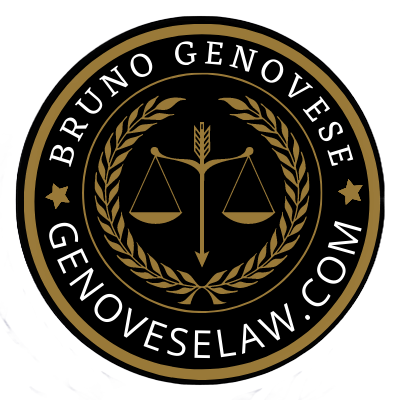Introduction
So, you’ve invested in a French leaseback property – congratulations! You’ve got a piece of the French dream, complete with rolling vineyards, charming village squares, and the faint smell of pain au chocolat wafting through the air. Or maybe you’re planning to invest and have visions of receiving “guaranteed” rental income while sipping Bordeaux from your vacation home balcony.
But before you start printing those dream postcards, there’s a side to French leaseback investments that’s, shall we say, a bit stinkier than expected. Like unpasteurized Camembert, leaseback ownership may be an acquired taste, and not everyone who dives in is prepared for the unique challenges of property ownership in France.
In this article, we’re taking a closer look at the hidden headaches – and the quirks – that can turn the French leaseback dream into a bit of a déception. From slippery guarantees to rising fees that scale like the Eiffel Tower, here’s the rundown on leaseback ownership, with a hint of humor to ease the pain.
1. “Guaranteed” Rent – Or So They Said!
Ah, the magic words every investor wants to hear: “guaranteed rental income.” When you bought into a French leaseback, this promise probably sounded as solid as the foundation of the Louvre. After all, what could go wrong with a setup that’s backed by the government and practically spells out assurance in the brochure?
The reality, unfortunately, may be less romantic. Many leaseback owners discover that “guaranteed” rental income is a bit like a French waiter’s smile – warm at first but prone to disappear as soon as there’s a problem. A property management company might cite “market conditions” or “extraordinary circumstances” as reasons to lower or withhold rental payments, and suddenly, your garantie feels more like a fragile paper napkin than a dependable source of income.

Case in Point: The Vanishing Rent
Consider the story of Michel, who invested in a cozy résidence de tourisme on the French Riviera. Michel’s leaseback contract promised regular income every quarter, with his share of profits from holiday rentals. But a year later, a letter from the property manager arrived, explaining that “market conditions” meant rent was temporarily suspended. Michel’s “guaranteed” income had evaporated faster than morning mist on the Côte d’Azur.
The fine print often gives property managers the upper hand, with vague clauses about rental adjustments. Essentially, your guaranteed rent might not be so guaranteed if the company managing your property decides their financial situation requires a pause in payments. In legal terms, you’re often left with few options other than a sternly worded email or, in extreme cases, a courtroom – neither of which are particularly efficient ways to get your rental income back on track.
Why This Happens: Leaseback’s Little Loopholes
The culprit here lies in the design of the leaseback system itself. While the French government initially established this structure to boost tourism and encourage foreign investment, the fine details left room for creative interpretation. Managers often have the authority to make financial adjustments, especially when their own profits are squeezed by low tourism seasons or economic downturns. Think of it as a silent partnership where you provide the funding and take the risks, while someone else pulls the strings.
Protecting Yourself from the Vanishing Act
So, what can you do to avoid Michel’s fate? For starters, before you sign, consult with a legal expert who understands the specifics of leaseback contracts. They can help spot the ambiguous clauses that allow for rental adjustments and advise you on what realistic income projections might look like, even if the brochures paint a rosier picture. Additionally, find out who the property manager is and research their reputation – some companies are more reliable and financially secure than others, and it’s worth ensuring they won’t be quick to declare “market conditions” at the first sign of a rainy summer.
2. Maintenance Fees That Rise Like Champagne Bubbles
Ah, the luxurious charges de copropriété, otherwise known as those unavoidable maintenance fees that come with your slice of French paradise. These are the fees intended to keep the property in tip-top shape, covering everything from the charming shutters that welcome sunlight into the lobby to the occasional coat of fresh paint on your rental’s exterior. You might have assumed they’d stay fairly stable over time – after all, how much could a new coat of paint possibly cost? But the truth is, maintenance fees in French leasebacks have an almost magical ability to increase, and often at a rate that leaves owners shaking their heads faster than you can say “mais non!”
The Never-Ending List of “Essential” Upgrades
Imagine you’re all settled in with your “guaranteed” rental income, only to receive a notice that your building’s charming wooden beams “absolutely require” a touch-up. Not long after that, there’s a new invoice for the re-paving of the parking lot, followed by additional fees for the renovation of the lobby (that “welcoming ambiance” doesn’t pay for itself, apparently). Before you know it, your once-reliable rental profits are being poured back into endless “essential” improvements – many of which you might not even see if you live halfway around the world.
When Every Lightbulb Feels Like a Luxury Item
One leaseback owner, Sophie, recounted her experience of opening her quarterly statement, only to discover that she was paying for a complete landscaping overhaul of the grounds – a project that involved everything from imported olive trees to decorative gravel that, quite frankly, no one asked for. “I didn’t think I was signing up to fund Versailles!” Sophie joked, shaking her head over the invoice.
It’s not unusual to see these fees climb year after year, and with each small increase, you’re given a reasonable-sounding explanation (a touch of peinture here, a refreshed jardin there) that makes it all seem necessary. But the end result is a steadily shrinking profit margin and a maintenance budget that seems to rival the operating costs of the Eiffel Tower.
How to Keep the Fees in Check – Or at Least Try
When you’re buying a leaseback, it’s crucial to investigate the maintenance policy and find out who makes decisions about upgrades. Some property managers are notorious for having “champagne tastes,” while others may be more conservative with their upkeep budgets. Ask for a breakdown of maintenance costs over the past five years and see if you can spot any patterns. If there’s a new manager in place, find out their background – a former luxury hotel director, for instance, may have loftier standards (and expenses) than someone who ran a budget-friendly guesthouse.
And if you’re already knee-deep in invoices for Italian marble countertops in the lobby and custom crystal chandeliers in the hallways? Consider joining the syndicat de copropriété (the owner’s association). By participating, you’ll at least have a say in which “necessary” projects are prioritized, and you might be able to steer the budget toward more sensible options (think fresh doormats instead of bronze door handles).
3. Selling? As Tricky as Pronouncing ‘Croissant’ Correctly
So, after all this, maybe you’re ready to bid adieu to your leaseback property and cash out. Perhaps you’re dreaming of reinvesting in something simpler – something with fewer surprise fees and a little less French bureaucracy. But here’s where the leaseback investment can truly start to feel like a lifetime commitment: selling isn’t always a straightforward process. In fact, selling a leaseback property can sometimes make you wish you’d taken up a new hobby instead, like learning to pronounce croissant with an authentic French accent (it may be just as challenging).

The Catch-22 of Leaseback Sales
Leaseback contracts are designed to promote long-term tourism in France, which is why they often come with stipulations that prevent you from simply selling to anyone who offers you a reasonable price. If you try to sell with the lease attached, your pool of potential buyers is typically limited to other investors – people who are willing to take on the lease obligations along with the property itself. And unless you’re in a prime tourist hotspot with high demand, finding someone eager to pick up where you left off can be, shall we say, a bit of an uphill battle.
But what if you want to sell sans lease? This is often possible, but it usually requires a payout to the property management company – a fee that may make you think twice about those grand plans to free up your cash. Essentially, you’re often in a situation where selling becomes a balancing act: find an investor who sees value in your property with the lease, or pay up to dissolve the lease and hope the sale price covers your losses.
A “For Sale” Sign that Lingers
Take Pierre, for example, who had grand plans to reinvest in a different region of France after five years. Little did he know, he would be spending more time listing his property than he ever did renting it out. “It’s like that wine I bought five years ago,” Pierre joked. “I keep hoping it’ll age well, but every year, I’m still stuck with it, and I’m not even sure it’s getting better.”
If you do find a buyer willing to accept the lease, be prepared for negotiations that feel as drawn out as a six-course French meal. Terms and conditions, potential changes in management, projected income – each aspect must be covered, with the buyer potentially nitpicking over every financial detail. The process can take months, sometimes years, and it’s not uncommon for owners to finally manage a sale only to realize they might have done better simply sticking with traditional real estate.
Practical Tips for a Smoother Sale
If you’re contemplating selling, a bit of preparation can go a long way. First, consult with a real estate agent experienced in leasebacks. They can advise you on potential buyers and realistic pricing. Additionally, review your lease agreement carefully – you may find that some of the “non-negotiable” terms are, in fact, negotiable if you’re willing to pay a fee or go through the appropriate legal channels.
Lastly, consider timing: just as you’d time the sale of a vineyard to coincide with a good harvest season, try to list your property when demand is high, such as during peak tourism periods. And if all else fails, take a deep breath and remember that la patience est une vertu – patience is a virtue. Selling a leaseback can feel like waiting for fine wine to age, but with a bit of persistence, you’ll eventually find a way to make your exit.
4. Lease Terms: Longer than the Line at the Louvre
If there’s one thing French leasebacks excel at, it’s longevity. Many of these contracts are drawn up to last decades, with an initial term of nine or twelve years that can renew automatically, turning what seemed like a manageable commitment into a property version of an endless French bureaucracy line.
Why So Long? The Fine Art of Contractual Lock-In
The French leaseback system was designed with one primary objective in mind: to keep tourism running smoothly. Long lease terms were meant to encourage stability, ensuring that the properties remain available for rental to tourists. This is great in theory but, for property owners, it can feel like getting stuck with a dinner bill after your friend conveniently “forgets” their wallet.
Lease contracts can automatically renew if you’re not careful, meaning you could easily find yourself locked in for years beyond what you initially anticipated. And if you try to break free? Prepare for hefty penalties. Early termination can cost you a significant chunk of change, potentially erasing any profit you made. It’s like finding out that your prix fixe dinner comes with hidden charges for every course – suddenly, that bargain investment looks a lot more expensive.
The Real Cost of Getting Out Early
One leaseback owner, Jacques, learned this the hard way. After a few years of diminishing returns, he decided it was time to move on. But breaking the lease required him to cover “lost income” for the management company, a figure that seemed to grow with each passing conversation. “It would have been easier to keep paying than to buy my way out!” Jacques quipped, ruefully.
The process of getting out can also be extremely bureaucratic. Expect paperwork that rivals the complexity of France’s tax system and plenty of back-and-forth with the property management company, who may not be in any rush to let you off the hook.
How to (Potentially) Escape the Never-Ending Lease
If you’re determined to get out, there are a few options to consider. First, review the contract for any clauses that allow termination under certain circumstances – sometimes a change in property management or failure to maintain certain standards can open a legal door to exit. Second, speak to a French property lawyer who specializes in leasebacks; they might spot an angle that wasn’t apparent to you, like a clause hidden among the finer print. And finally, remember that selling the property is always an option – provided, of course, you can find a buyer willing to take on the lease.
In the meantime, if you find yourself longing for the day when your property is truly yours again, pour a glass of Bordeaux, take a deep breath, and know that your leaseback is, at the very least, contributing to French tourism – even if it’s slowly driving you to désespoir.
5. Tax Incentives – The Classic French Bait-and-Switch?
One of the main attractions of French leasebacks is the promise of tax breaks. These incentives were designed to make leaseback properties appealing to investors, offering deductions on VAT and income tax. And who wouldn’t want to save on taxes while owning a slice of French paradise?
However, like the famously convoluted French tax code, leaseback tax benefits come with a mountain of rules and conditions. Keeping those incentives depends on sticking to strict requirements. Break the lease, sell the property prematurely, or fail to comply with the rental terms, and suddenly, the tax breaks evaporate faster than a demi-tasse of espresso.
The Hidden Complexity of “Tax-Friendly” Investments
Many leaseback owners, initially lured in by the idea of avoiding VAT, are stunned to discover that keeping their tax status in good standing involves a commitment rivaling that of a French mariage de raison. Miss a single bureaucratic requirement, and you could be liable for back taxes on all those savings you’ve enjoyed. It’s like winning a bottle of fine wine, only to find that you’re responsible for storing, corking, and labeling it yourself under strict instructions.
Consider the case of Anne, who purchased a leaseback property on the coast. The property was sold to her with the tantalizing prospect of a full VAT refund. However, when the management company changed, the new rental terms didn’t align with the tax incentive requirements. To Anne’s horror, she was asked to pay back a large portion of VAT – effectively erasing the last few years of profit.
Avoiding the Tax Trap
To avoid these costly surprises, it’s essential to understand the tax conditions tied to your leaseback. Work with a tax advisor who knows the ins and outs of French property laws to ensure you stay compliant. They can help you understand how rental obligations interact with tax requirements, making it easier to stay in the good graces of French tax authorities. And if you’re considering an early exit or a sale, make sure to calculate any potential tax implications before making a move. That way, you won’t be hit with a bill the size of a Parisian restaurant’s “service inclus” surcharge.
6. Property Managers: The Silent Puppet Masters
In the world of French leasebacks, property managers hold the reins. They’re responsible for everything from rental bookings to maintenance, and as the saying goes, “with great power comes great responsibility” – although in this case, it might be more accurate to say “great leverage.” These managers often have significant control over your property, and if they decide to prioritize profit over maintenance, or cut corners, you might be left dealing with the fallout.
When the Manager Holds All the Strings
One of the biggest surprises for leaseback owners is how much authority the property management company wields. These companies can decide on everything from pricing to renovation schedules, and their decisions impact your bottom line directly. The good ones keep the property well-maintained and attract reliable guests. But the less diligent managers? They can run the place like a discount hostel, turning your investment into a run-down, high-fee burden.
One leaseback owner, Marie, found herself paying for countless “emergency repairs,” which she later learned were the result of delayed maintenance. The management company would let minor issues pile up, only to address them all at once in a costly overhaul, conveniently funded by Marie’s quarterly fees. “They have the keys, the access, and apparently the freedom to redecorate at my expense,” she sighed.
Taking Back Some Control
Unfortunately, owners rarely have much say over management practices. However, there are ways to assert yourself. If your property manager isn’t performing to standard, start by raising concerns with the syndicat de copropriété. Joining forces with other owners can make it easier to push for changes, especially if you can demonstrate a pattern of neglect or financial mismanagement.
Also, review your lease terms for any clauses around maintenance standards and fees. In cases of serious neglect, you may have legal grounds to renegotiate or replace the management company – but be prepared for a lengthy process. It’s a bit like navigating the French DMV: patience and persistence are your best allies.
7. Market Value vs. Reality: The Appraisal Roller Coaster
Ah, the sweet promise of property appreciation. If you’re investing in French real estate, you might envision your asset growing in value year after year, eventually fetching a handsome return. But with leasebacks, the reality can be as unpredictable as a game of pétanque in the park. While leasebacks may seem like a “safe bet,” their value is often tied to the lease itself, which can complicate things when it comes time for an appraisal.
The Dreaded Depreciation Factor
Many leaseback properties are initially priced at a premium, reflecting the tax incentives and rental income potential. But once those incentives expire, or if the lease is terminated, the property’s value can take a hit. This depreciation is especially noticeable in areas where traditional real estate might perform well but leasebacks aren’t highly sought after. It’s like discovering that the fine wine you bought was only worth its price because of the fancy label – once that’s gone, you’re left with something far less impressive.
For example, Marc, an owner in the Loire Valley, purchased his leaseback property for a premium price, confident it would retain value over time. But when he looked into refinancing, he was shocked to find the property was appraised far lower than his initial purchase price, leaving him with less equity than he’d expected. “The appraisal felt like a wake-up call,” Marc admitted. “It turns out my investment wasn’t aging like fine wine after all.”
Setting Realistic Expectations
If you’re considering refinancing or selling, get a realistic property appraisal early on. Be cautious of overly optimistic valuations and look for comparable sales in the area. While your leaseback may not appreciate like a traditional home, knowing where you stand can help set clear expectations for any future transactions.
Conclusion: Say Au Revoir to Leaseback Headaches!
So, is French leaseback ownership as glamorous as it seems? The answer depends on whether you’re prepared for the fine print and the unique quirks of France’s property market. With “guaranteed” rent that sometimes vanishes, ever-rising maintenance fees, and management companies calling the shots, leasebacks can certainly test the patience of even the most ardent Francophile.
But with the right guidance and a hefty dose of humor, you can navigate these challenges, make informed decisions, and maybe even enjoy a glass of Bordeaux while your investment matures (or at least, doesn’t depreciate too quickly). And if all else fails, remember that every headache you’ve encountered has likely been experienced by someone else – perhaps even over a glass of wine, as they pondered the same question: “Was it all worth it?”
If you’re feeling ready to tackle your leaseback’s complexities, consider speaking with a seasoned French real estate expert or attorney who can help ensure you’re in good shape to deal with surprises. With a bit of foresight and some professional guidance, you may just find your French property dreams becoming a little less fromage and a lot more fruitful.





